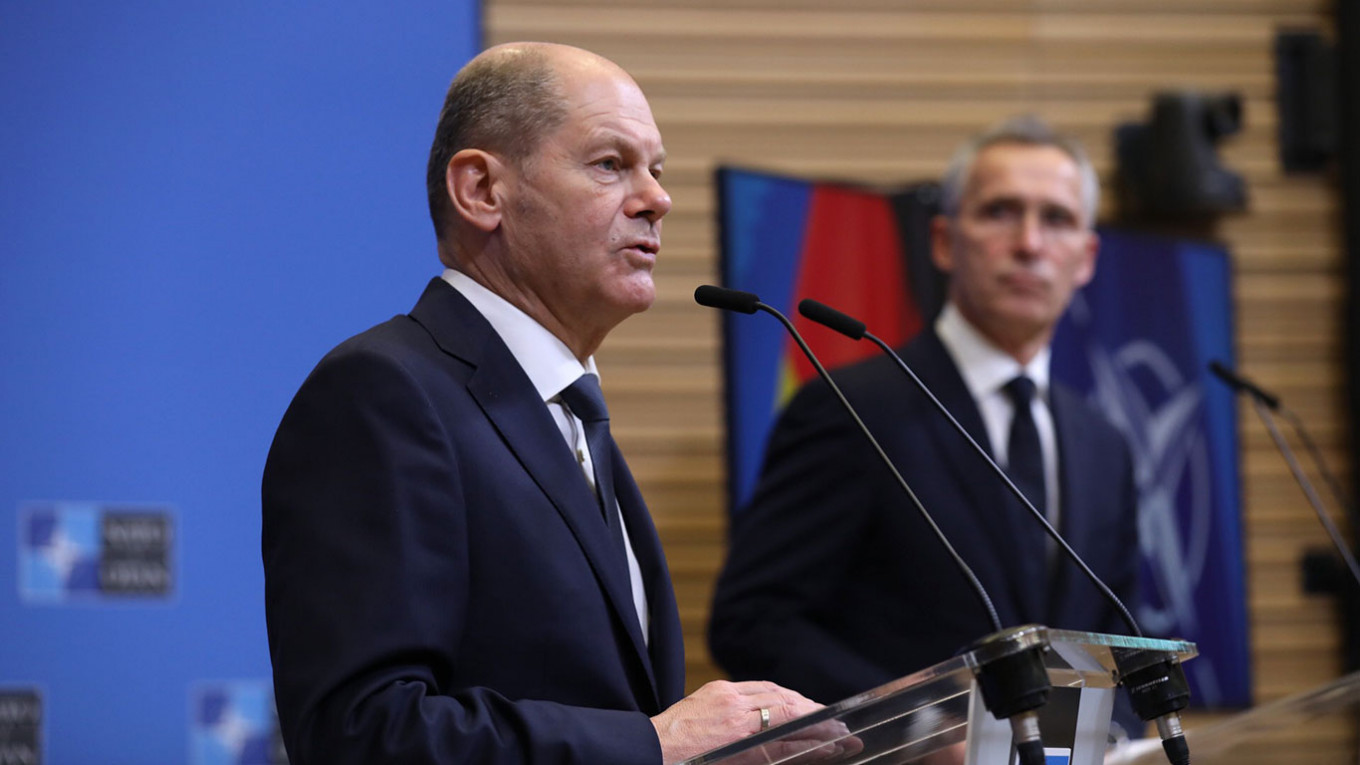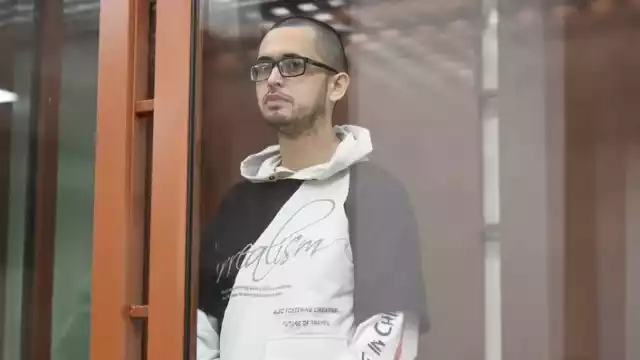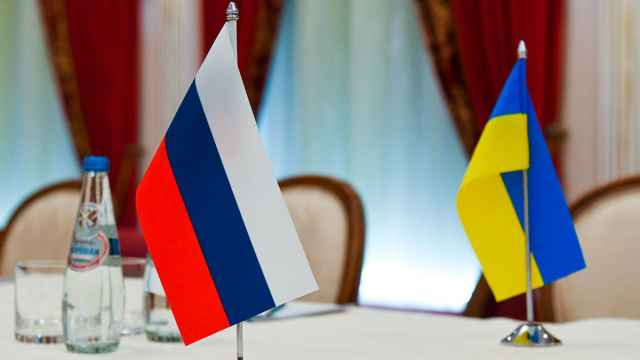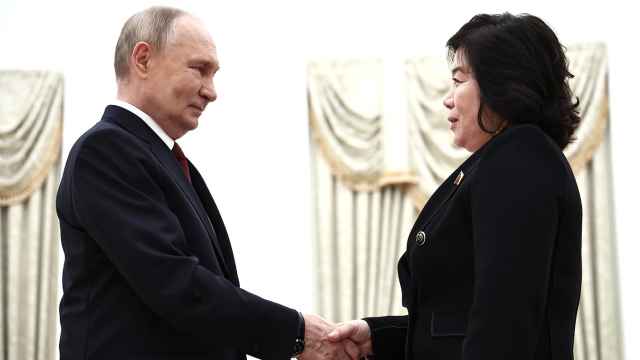Germany's new government is facing pressure to get tough on Russia, after a German navy chief's pro-Moscow remarks angered Kyiv and exasperation grows with Berlin's fence-sitting in the Ukraine crisis.
After a week of frantic diplomacy that included a visit to Berlin by US Secretary of State Antony Blinken, Chancellor Olaf Scholz's government found itself scrambling at the weekend to reassure Kyiv of its support amid fears of a Russian invasion.
The spat was triggered by German navy chief Kay-Achim Schoenbach's musings that it was "nonsense" to think Russia was about to march on Ukraine and that President Vladimir Putin deserves respect.
Schoenbach resigned late Saturday but the damage was done.
The Ukrainian ambassador to Germany, Andrij Melnyk, said Ukrainians were "deeply shocked."
The incident "massively calls into question Germany's international credibility and reliability — not only from the Ukrainian perspective," he told Die Welt newspaper on Sunday.
In Kyiv, Foreign Minister Dmytro Kuleba summoned the German ambassador and accused Germany of "encouraging" Putin to attack Ukraine.
The Ukraine crisis is the first major test for Scholz, who took over from veteran leader Angela Merkel last month.
His coalition government of the centre-left Social Democratic Party (SPD), the Greens and the pro-business FDP, has vowed "dialogue and toughness" with Russia.
But it has struggled to overcome internal divisions and craft a unified response on how to deal with an emboldened Moscow.
The Handelsblatt financial daily, noting that German politicians' tendency to "understand Russia" remains alive and well, asked: "Where is the line between a willingness to engage in dialogue, and strategic naivete?"
Arming Ukraine
A key bone of contention between Germany and Western allies is Berlin's refusal to send weapons to Ukraine.
The decision puts Germany at odds with the United States, Britain and Baltic states which have already agreed to send weapons, including anti-tank and anti-aircraft missiles.
Germany is traditionally reluctant to get involved in military conflict, traumatised by its past as an instigator of two World Wars, and Scholz's government insists arming Ukraine would only inflame tensions.
But Ukraine's Kuleba said Germany's cautious stance does not match "the current security situation", and urged Berlin to "stop undermining unity" among Kyiv's allies.
Even in Germany, some have called for a rethink.
Henning Otte, a lawmaker from the centre-right CDU opposition party, told the Bild daily last week that if Ukraine is asking for weapons to fend off a possible attack, "we must not reject this request."
Nord Stream 2 leverage
Another sore point in the Ukraine crisis is the contentious Nord Stream 2 pipeline, which has split the new cabinet in Berlin.
The completed pipeline, currently awaiting German regulatory approval, is set to double Russian gas supplies to Germany.
The previous Merkel-led government always insisted that the pipeline was a purely commercial project — irritating allies who fear the pipeline will give Russia too much leverage over European energy.
While Scholz has echoed Merkel's line on the pipeline as a "private sector project," his Foreign Minister Annalena Baerbock, from the Greens, is a known opponent of Nord Stream 2.
But in a sign that Scholz's position may be hardening, he reiterated last week that he stood by a German-US deal not to allow Moscow to use the pipeline as a weapon and that when it comes to sanctions, "everything" is on the table.
"Scholz's new statement should hopefully now bring more coherence to the German debate and reassure partners abroad who had started to see Germany as the West's weak link," said Jana Puglierin of the European Council on Foreign Relations think-tank.
'Correct course'
Germany's SPD has a "nostalgic reflex" when it comes to Russia, said Die Zeit weekly, harking back to ex-SPD chancellor Willy Brandt and his "Ostpolitik" policy of rapprochement with the east in the 1970s.
In an open letter in Die Zeit earlier this month, 73 Eastern Europe and security experts urged Berlin to end its "special treatment" of Russia and correct course.
Germany has been watching the Kremlin's actions "critically but largely inactively for three decades", they wrote. Now, "Germany must act".
A Message from The Moscow Times:
Dear readers,
We are facing unprecedented challenges. Russia's Prosecutor General's Office has designated The Moscow Times as an "undesirable" organization, criminalizing our work and putting our staff at risk of prosecution. This follows our earlier unjust labeling as a "foreign agent."
These actions are direct attempts to silence independent journalism in Russia. The authorities claim our work "discredits the decisions of the Russian leadership." We see things differently: we strive to provide accurate, unbiased reporting on Russia.
We, the journalists of The Moscow Times, refuse to be silenced. But to continue our work, we need your help.
Your support, no matter how small, makes a world of difference. If you can, please support us monthly starting from just $2. It's quick to set up, and every contribution makes a significant impact.
By supporting The Moscow Times, you're defending open, independent journalism in the face of repression. Thank you for standing with us.
Remind me later.






